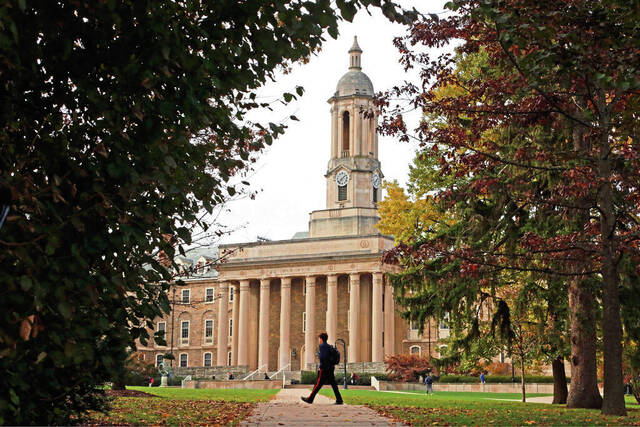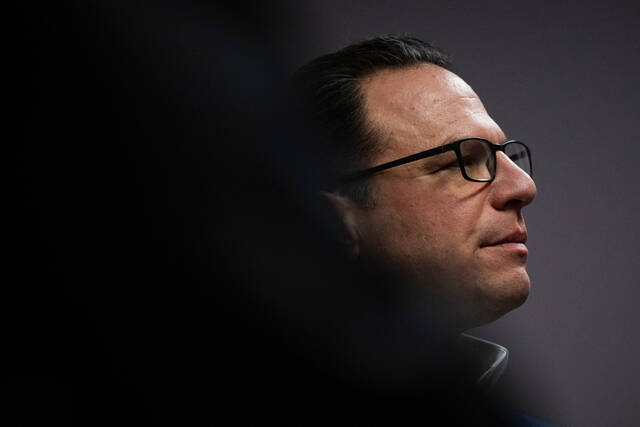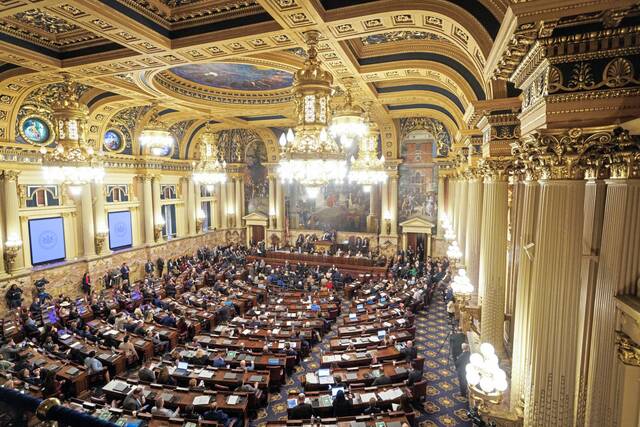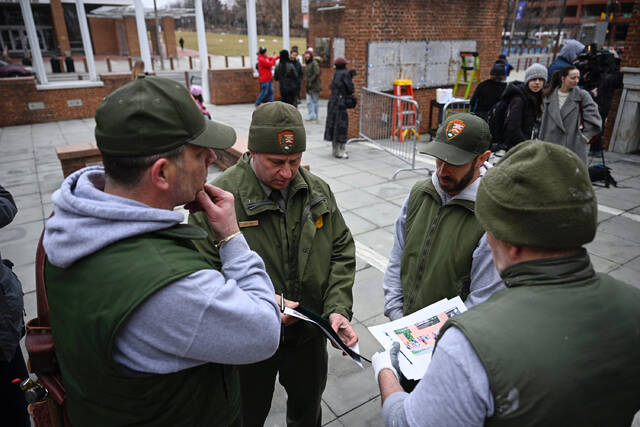The state House passed legislation Tuesday that Democrats and Republicans quickly hailed as progress toward ending a monthslong stalemate over this year’s appropriations to the University of Pittsburgh and other state-related institutions.
But at least one potential glitch has developed — a big one.
The House, where Democrats hold a razor-thin majority, passed House Bill 612 on Tuesday. It would provide Pitt, Penn State and two other state-related schools their appropriations for fiscal year 2023-24, which began July 1 — provided they freeze tuition in the 2024-25 academic year.
At least one institution, Pitt, already has said it wants to freeze tuition next year for in-state students.
However, the offer is tied to getting its appropriation request for the 2024-25 fiscal year: a 9.25% increase over this year.
Likewise, Penn State trustees voted in July to hold tuition flat on the university’s Commonwealth campuses in 2024-25, but the board also voted to raise those rates by 2% on its main campus at University Park.
After Tuesday’s vote, Penn State spokesman Wyatt Dubois provided a university statement saying the university cannot abide by the legislation’s required freeze.
The statement alluded to the trustees’ July vote.
“While we appreciate the Pennsylvania House approving increased funding for Penn State for the current fiscal year, we simply cannot support the amendment adopted by the House, which would undermine the Board of Trustees’ authority to set tuition and force the University to freeze tuition for all students in the next academic year,” it read.
The statement said the university already has made efforts to curb or freeze tuition in recent years, and a universitywide freeze in 2024-25 would amount to a $54 million cut.
Pitt spokesman Jared Stonesifer shared a university statement that said:
“The University of Pittsburgh appreciates our longstanding and robust partnership with the commonwealth, and we look forward to continued conversations with both lawmakers and the administration as this process moves forward in the weeks ahead.”
In July, a version of House Bill 612 without the tuition freeze stipulation fell short of a required two-thirds majority vote. Tuesday’s vote in the affirmative was 145 to 57, suggesting the freeze provision had swayed a number of Republicans.
Democrats hold a one-seat edge in the chamber.
House Bill 612 would provide a 7% increase in funding to Pitt, Penn State and Temple University, as well as a 25% increase in funding for Lincoln University. About 100,000 Pennsylvanians attend the four universities, and leaders say the state appropriation is used to offer in-state tuition rates thousands of dollars less than what non-Pennsylvanians pay.
The bill now goes to the state Senate.
That body, like the House, must secure a two-thirds majority for the bill, as state-related schools are public but not state-owned and do not have a designated spot in the state budget.
Earlier Tuesday, both House Democrats and Republicans issued statements hailing the bill’s passage, using language suggesting progress toward a resolution.
“For months, House Democrats have worked to provide our world-class state-related universities with critical state budget investments to ensure that tuition for students remains affordable,” said Majority Leader Matt Bradford, D-Montgomery. “Today, we have put forth another measure that not only provides this funding, but also holds the line on next year’s tuition rates to further support our hard-working students.”
Rep. Jesse Topper, R-Bedford/Fulton, the Republican chairman of the House Education Committee, said:
“The reason we were able to advance this bill today was because of leadership across the board, from here in the House to the university level.
“Positive things happen for Pennsylvanians when all sides come to the table in earnest and work through differences,” he added. “This bill is a positive step forward. I think we’ll see more positive steps in the future, including the addition of performance-based metrics at our state-related universities.”
Beth Rementer, press secretary to Majority Leader Bradford, pointed to an Oct. 23 letter from all four university chief executives, saying they had heard House and Senate members’ concerns. She said it suggested “a willingness to work with us on a solution” that may have led to Tuesday’s vote.
It read:
“… Despite no funding to date we have done our very best to control increases to tuition, supported further transparency measures, and have publicly called for more accountability,” they wrote. “We hope these actions demonstrate our desire to be good partners with the Commonwealth. “
In his proposed state budget for 2023-24, Gov. Josh Shapiro proposed 7% increases. Pitt would receive $165.8 million in general support including rural education outreach, which would be a $10.7 million increase; Penn State would get $287.9 million for general support and for the College of Technology, which would be a $19 million increase.











